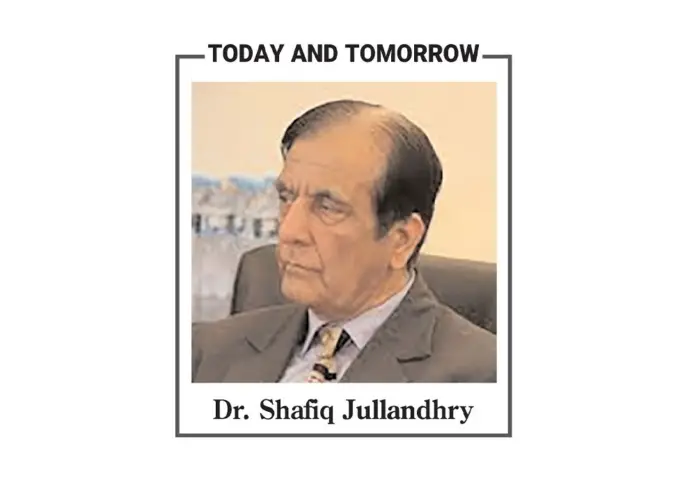Whenever we face some severe problem at the national level or observe wrongdoing in the ranks of the people in the government or their streets and bazaars, they generally raise a question that is there any ‘custodian’ of this nation? We live under a constitution and there is a complete system of law, rules, and regulations for all walks of life. But, in general, we don’t care for the law and constitution. After the ruling of the deputy speaker of the National Assembly, the political atmosphere became tense and people felt that at this point, workers of various political parties can go uncontrolled and try their mussels. In the face of a meager economy, it could be fatal for the nation. But the apex court took an initiative and came forward with its own motion (suo motu case). The five-member larger Supreme Court bench was headed by Chief Justice of Pakistan Justice Umar Ata Bandial.
Three to four days of arguments from both sides and judges’ questioning were fantastic. It was a great opportunity for common people to learn about law proceedings and meanings and interpretations of the words of the constitution and law. Worthy judges told in the beginning of proceedings that their focus will be on the ruling of the deputy speaker of the National Assembly and they will see whether the ruling was according to the constitution or not, and they will not go for the political or foreign policy affairs.
So much was explained and the arguments of both sides made many things crystal clear. True, the judges indicated during the hearing that they will look at the National Assembly’s proceeding of April 3 and its constitutional aspects, but even then no one guessed precisely what the decision could be. Many were of the opinion that the decision could be a win-win position for both sides of the political divide. One opinion was that after this decision, the political position of any one of the contestants will be ruined.
To many, it was going to be the most important decision of the Supreme Court in the political history of Pakistan. There were people with the opinion that the decision should please the majority. Their argument was that politics and democracy are all about the majority rule. If the decision comes in favour of the majority of people’s wish, it will be according to the true spirit of democracy. According to them, Imran Khan has won the sympathies of the people after telling them about the ‘foreign conspiracy’ and has become the ‘most popular’ political leader. They desired that if the Supreme Court has taken this political issue in hand, it should be decided democratically. Generally, people having some understanding of the constitution understood that the Supreme Court will give its verdict keeping in mind if the deputy speaker’s ruling was according to the constitution or not. Opposition workers were confident that in the National Assembly, numbers of their side members is much higher; if democracy is a number game then they have obviously won it.
Workers of the ruling Pakistan Tehreek-e-Insaf and its allies were labeling the ‘absconder’ members as ‘horses’ and those who received ‘crores of rupees’ from opponents as ‘traitors.’ They were sorry that their plea for deciding the membership dismissal of their ‘party absconders’ was not accepted. In this regard, they still have strong feelings and think that those who got public vote only by using party and Imran Khan’s name and now changed their political affiliations and got ‘crores of rupees’ from the opposition, their assembly membership is liable to be dismissed. This ‘horse-trading’ is the dirtiest aspect of democracy and politics. This is an open secret and everyone who has some political know-how is well aware of the market where the parliament members are purchased. PTI people desired judicial inquiry into the ‘conspiracy’ and ‘horse-trading’, but the apex court refrained from indulging in such political issues.
It is true because when the court involves itself in any political issue, people from both sides of the divide want a ‘democratic’ decision according to the desire of the majority of the people. But the problem is that the Supreme Court’s decisions are given on merit and its merit is the country’s constitution and laws. PTI workers should not take the Supreme Court’s decision as their defeat. Their leader is still ‘popular’ and there are millions of people who love him. Both sides need to discipline themselves and correct their tones. All Pakistanis must be respectable people in the eyes of political workers. No matter how fast and clever the political workers are, their success lies with cool temperaments, respect for differences of opinion, and respect for all brethren Pakistanis.






